The AAG Stanley Brunn Award for Creativity in Geography
Nominations for the 2025 AAG Stanley Brunn Award are not being accepted at this time.
Deadline for Nominations: September 20, 2025
The AAG Stanley Brunn Award for Creativity in Geography is given annually to an individual geographer or team that has demonstrated originality, creativity, and significant intellectual breakthroughs in geography. The award includes a prize of $1,000. Awardees are chosen by the AAG Executive Committee and are presented during the AAG’s Annual Meeting.
Eligibility
Individual geographers or teams of individuals that include geographer(s) are eligible. The geographer recipient(s) must be a living member of the AAG. Nominations from a wide spectrum of the junior and senior scholars in the geography community are encouraged.
Criteria
The award will be presented to those who have made innovative contributions to the discipline of geography. These contributions may be based on field or laboratory research efforts and methodologies, qualitative or quantitative methods, geographical science and/or technology breakthroughs, work which intersects with the arts or humanities, or conceptual/theoretical breakthroughs in geographic/disciplinary thought that advance our thinking at local or global scales. Most serious consideration will be given to those nominees who have a sustained, impressive and recognized record of creative and cutting-edge work; who have made significant contributions to new geographic methods or ways of thinking, or who have introduced new and meaningful ways of thinking about human/environment relations at local or global scales. Awardees should already be identified for their path breaking initiatives by their peers. Single publications or research products (article, chapter or book), unpublished dissertations, translations of a major work in another language, or niche contributions to a subfield will not be considered sufficient.
Nominations
To make nominations for the AAG Brunn Creativity Award, include the complete name and address of the nominee(s), a curriculum vitae or a record of the team’s work as a group, and a concise (500 words maximum) yet specific description of the accomplishments that warrant selection according to the above criteria. Two supporting letters from other individuals are required, a third may also be submitted. The deadline for receipt of nominations is September 20. Each year, the AAG Executive Committee will review nominations submitted from the membership as well as nominees put forward by members of the Executive Committee, and select the AAG Brunn Creativity Awardee.
As with all other AAG awards, eligibility also rests on the candidate being in compliance with the AAG Professional Conduct Policy. Nominations may be rescinded, and the award may also be revoked for any candidate or awardee who is found in violation of the AAG’s Professional Conduct Policy.
Submissions
Please gather all required supporting documents before completing the online Application Form at this link. The Application Form will require you to upload all supporting documents before being able to complete your submission. You cannot save a partially completed form and return to it later, so it is important to have all materials ready before accessing the online Application Form. For questions or difficulties, please contact [email protected] or call the AAG at 202-234-1450.
About the Award
Major creative efforts come from new insights into familiar subject matter or completely new perspectives into emerging disciplinary, interdisciplinary and transdisciplinary subject matter. These are not minor and niche contributions, which we are often the contributions one sees in a completed dissertation or journal article. Rather the breakthroughs have some deep conceptual and theoretical underpinnings which, when looked at in hindsight, have generated (or may generate) often completely new ways of looking at human, environment or human/environment relations, all spheres considered part of our disciplinary core. Or they may come from new ways of creating or presenting geographic information. The kind of intellectual breakthroughs that merit the AAG Creativity Award may include mapping social media, indigenous mapping and PPGIS, devising a schema to define and map planet’s ecological footprints, ad hoc health care and disaster mitigation delivery systems and those who work in the overlapping fields of planetary theology, transboundary ecojustice enforcement, green urban models, language endangerment and evolution, nonvisual geographic learning, geography and human rights, postmodernism and environmental geographies, postcolonial diaspora networked geometries, or global and local diaspora geopolitical networks. In each of these areas, the contribution is characterized by an appearance of new vocabularies, new spatial “twists” to concepts solidly identified with a related field in the humanities, social and physical sciences, and/or the creative incorporation of some new technologies (field, GIS, etc.) and methodologies.
AAG Stanley Brunn Award for Creativity in Geography Recipients
Mauris non tempor quam, et lacinia sapien. Mauris accumsan eros eget libero posuere vulputate. Etiam elit elit, elementum sed varius at, adipiscing vitae est. Sed nec felis pellentesque, lacinia dui sed, ultricies sapien. Pellentesque orci lectus, consectetur vel posuere.
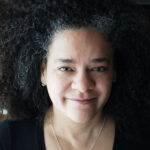
Katherine McKittrick
As a foundational voice for Black geographies and Black methods of knowledge creation, Dr. McKittrick has re-imagined scholarship to be both documentation and instigation in modes that are poetic, sonic, material, and rhetorical. In every new, surprising iteration, her work offers “curiosity, wonder, citations, numbers, playlists, friendship, poetry, inquiry, song, grooves, and anticolonial chronologies as interdisciplinary codes that entwine with the academic form,” according to Duke University Press.
Katherine McKittrick is professor of Gender Studies and Canada Research Chair in Black Studies at Queen’s University in Kingston, Canada. She is the author of Dear Science and Other Stories (Duke University Press 2021), which both analyzes and challenges scientific practice for its inherent ties to colonialism and anti-Blackness. Her 2006 book Demonic Grounds: Black Women and the Cartographies of Struggle has had a lasting impact on both Black and feminist studies since its publication by University of Minnesota Press. She has also contributed dozens of scholarly articles and edited and contributed to Sylvia Wynter: On Being Human as Praxis (Duke University Press, 2015).
McKittrick continually probes the boundaries and possibilities between scholarship and imagination, challenging conventionalized methods and demonstrating the range and collective power of all ways to knowledge creation, particularly Black knowledge creation. In 2023, McKittrick published Trick Not Telos, a boxed set of texts that takes its initial inspiration from Ruth Wilson Gilmore’s reading of McKittrick’s “Plantation Futures” (Small Axe 2013, 17: 3). Although the project was initially conceived as a modest response, it grew into a creative meditation—with designer Cristian Ordóñez, project curator Liz Ikiriko, and French translator Lyse Hébert—on the nature of reiteration, revision, bibliography, and translation. In 2024, she published Twenty Dreams (2024), a limited-edition hand-made book; and is preparing an installation honoring nourbeSe philip, A Smile Split by the Stars (2025).

2025 AAG Stanley Brunn Award for Creativity in Geography
Katherine McKittrick
2025 AAG Stanley Brunn Award for Creativity in Geography
As a foundational voice for Black geographies and Black methods of knowledge creation, Dr. McKittrick has re-imagined scholarship to be both documentation and instigation in modes that are poetic, sonic, material, and rhetorical. In every new, surprising iteration, her work offers “curiosity, wonder, citations, numbers, playlists, friendship, poetry, inquiry, song, grooves, and anticolonial chronologies as interdisciplinary codes that entwine with the academic form,” according to Duke University Press.
Katherine McKittrick is professor of Gender Studies and Canada Research Chair in Black Studies at Queen’s University in Kingston, Canada. She is the author of Dear Science and Other Stories (Duke University Press 2021), which both analyzes and challenges scientific practice for its inherent ties to colonialism and anti-Blackness. Her 2006 book Demonic Grounds: Black Women and the Cartographies of Struggle has had a lasting impact on both Black and feminist studies since its publication by University of Minnesota Press. She has also contributed dozens of scholarly articles and edited and contributed to Sylvia Wynter: On Being Human as Praxis (Duke University Press, 2015).
McKittrick continually probes the boundaries and possibilities between scholarship and imagination, challenging conventionalized methods and demonstrating the range and collective power of all ways to knowledge creation, particularly Black knowledge creation. In 2023, McKittrick published Trick Not Telos, a boxed set of texts that takes its initial inspiration from Ruth Wilson Gilmore’s reading of McKittrick’s “Plantation Futures” (Small Axe 2013, 17: 3). Although the project was initially conceived as a modest response, it grew into a creative meditation—with designer Cristian Ordóñez, project curator Liz Ikiriko, and French translator Lyse Hébert—on the nature of reiteration, revision, bibliography, and translation. In 2024, she published Twenty Dreams (2024), a limited-edition hand-made book; and is preparing an installation honoring nourbeSe philip, A Smile Split by the Stars (2025).
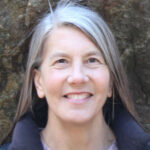
Margaret Wickens Pearce
Margaret Wickens Pearce is cartographer and founder of Studio1:1, a cartographic artistic practice. A member of the Citizen Potawatomi Nation, Pearce is dedicated to cartography as a form of writing that can combine and highlight narratives and dialogues across cultures and viewpoints. A focal point of her work is the application of cartography to express and elevate Indigenous geographies.
Pearce’s creative work in mapping has brought Indigenous knowledge more prominently into public discussion. Working with the elements of cartographic language, informed by Indigenous methodologies, she seeks to create ruminative spaces for restoring shared memory and creating change. Recent work includes the Land-Grab Universities project (2020), and numerous projects that map Indigenous place-name knowledge into the present, such as Coming Home to Indigenous Place Names in Canada (2017). Pearce and her collaborators often use mapping to open up literal and figurative spaces of consideration, such as the large-scale 2020 installation of two maps at the Field Museum as part of Native Truths: Our Voices, Our Stories. The maps create a place in which to confront and investigate the concept of “Removal” through the mapped experiences of Myaamia and Hoocąk people.
Among Pearce’s current projects is Inuit Nunangat, a map about the ways our carbon emissions interfere with Inuit self-determination and earth’s balance, and Mississippi Dialogues, a public art project resituating testimonies about flooding into an Indigenized Mississippi River.

2024 AAG Stanley Brunn Award for Creativity in Geography
Margaret Wickens Pearce
2024 AAG Stanley Brunn Award for Creativity in Geography
Margaret Wickens Pearce is cartographer and founder of Studio1:1, a cartographic artistic practice. A member of the Citizen Potawatomi Nation, Pearce is dedicated to cartography as a form of writing that can combine and highlight narratives and dialogues across cultures and viewpoints. A focal point of her work is the application of cartography to express and elevate Indigenous geographies.
Pearce’s creative work in mapping has brought Indigenous knowledge more prominently into public discussion. Working with the elements of cartographic language, informed by Indigenous methodologies, she seeks to create ruminative spaces for restoring shared memory and creating change. Recent work includes the Land-Grab Universities project (2020), and numerous projects that map Indigenous place-name knowledge into the present, such as Coming Home to Indigenous Place Names in Canada (2017). Pearce and her collaborators often use mapping to open up literal and figurative spaces of consideration, such as the large-scale 2020 installation of two maps at the Field Museum as part of Native Truths: Our Voices, Our Stories. The maps create a place in which to confront and investigate the concept of “Removal” through the mapped experiences of Myaamia and Hoocąk people.
Among Pearce’s current projects is Inuit Nunangat, a map about the ways our carbon emissions interfere with Inuit self-determination and earth’s balance, and Mississippi Dialogues, a public art project resituating testimonies about flooding into an Indigenized Mississippi River.
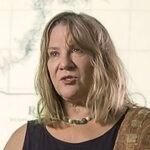
Susanna Hecht
Susanna Hecht, UCLA, is recognized for creative work to contribute to our understanding of the cultural, political, and natural conditions for deforestation and reforestation in the Amazon.

2023 AAG Stanley Brunn Award for Creativity in Geography
Susanna Hecht
2023 AAG Stanley Brunn Award for Creativity in Geography
Susanna Hecht, UCLA, is recognized for creative work to contribute to our understanding of the cultural, political, and natural conditions for deforestation and reforestation in the Amazon.
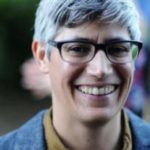
Kathryn Yusoff
Kathryn Yusoff, Queen Mary University London, for her research drawing from contemporary feminist philosophy and critical human geography as well as her multi-disciplinary investigations at the intersection of the arts and the earth sciences.

2022 AAG Stanley Brunn Award for Creativity in Geography
Kathryn Yusoff
2022 AAG Stanley Brunn Award for Creativity in Geography
Kathryn Yusoff, Queen Mary University London, for her research drawing from contemporary feminist philosophy and critical human geography as well as her multi-disciplinary investigations at the intersection of the arts and the earth sciences.

Dawn Wright
Chief Scientist at Esri, is recognized for her extraordinary contributions to science, pioneering and synthetic thinking about oceanography, geography, and GIS, and for her years of leadership. Over the course of her career, Dr. Wright has combined her expertise in spatial data science and oceanography to make creative and pioneering contributions to geograp
Her saltwater fieldwork began with many expeditions on the scientific research ship, the JOIDES Resolution. She was a key leader of a joint Esri/U.S. Geological Survey team that developed the first 3-Dimensional map of the waters within the world’s ocean, also known as the Ecological Marine Units. During her career, she has also received a innumerable awards and recognitions, including: the 25 BadAxx Women Shaping Climate Action in 2021, the American Geographical Society’s George Davidson Medal, the Extraordinary Leaders Award from the Society of Extraordinary Women in Science and Innovation, the AAG Presidential Achievement Award, and is a Fellow of many notable societies including AAAS, the Geological Society of America, the AAG, the Oceanography Society, and the California Academy of Sciences.

2021 AAG Stanley Brunn Award for Creativity in Geography
Dawn Wright
2021 AAG Stanley Brunn Award for Creativity in Geography
Chief Scientist at Esri, is recognized for her extraordinary contributions to science, pioneering and synthetic thinking about oceanography, geography, and GIS, and for her years of leadership. Over the course of her career, Dr. Wright has combined her expertise in spatial data science and oceanography to make creative and pioneering contributions to geograp
Her saltwater fieldwork began with many expeditions on the scientific research ship, the JOIDES Resolution. She was a key leader of a joint Esri/U.S. Geological Survey team that developed the first 3-Dimensional map of the waters within the world’s ocean, also known as the Ecological Marine Units. During her career, she has also received a innumerable awards and recognitions, including: the 25 BadAxx Women Shaping Climate Action in 2021, the American Geographical Society’s George Davidson Medal, the Extraordinary Leaders Award from the Society of Extraordinary Women in Science and Innovation, the AAG Presidential Achievement Award, and is a Fellow of many notable societies including AAAS, the Geological Society of America, the AAG, the Oceanography Society, and the California Academy of Sciences.

Brian J. Berry
Brian J. Berry, is one of the most influential figures in the disciplines of geography, urban studies, and regional planning. Berry’s early urban and regional research helped spark the scientific revolution that occurred in geography and urban research in the early 1960s, making him the world’s most frequently cited geographer for more than 25 years. Throughout his distinguished career he has successfully bridged theory and practice and has been heavily involved in urban and regional planning in both advanced and developing countries. In addition, the AAG recognizes Dr. Berry’s service to the discipline, including as AAG President (1978-1979), and as dean of the former University of Texas at Dallas School of Social Sciences, transforming it during a period of rapid growth into the (now) School of Economic, Political and Policy Sciences. Berry’s over 500 books, and his countless significant awards speak volumes on the impact of his research in geography, and its recognition in other scientific fields.

2020 AAG Stanley Brunn Award for Creativity in Geography
Brian J. Berry
2020 AAG Stanley Brunn Award for Creativity in Geography
Brian J. Berry, is one of the most influential figures in the disciplines of geography, urban studies, and regional planning. Berry’s early urban and regional research helped spark the scientific revolution that occurred in geography and urban research in the early 1960s, making him the world’s most frequently cited geographer for more than 25 years. Throughout his distinguished career he has successfully bridged theory and practice and has been heavily involved in urban and regional planning in both advanced and developing countries. In addition, the AAG recognizes Dr. Berry’s service to the discipline, including as AAG President (1978-1979), and as dean of the former University of Texas at Dallas School of Social Sciences, transforming it during a period of rapid growth into the (now) School of Economic, Political and Policy Sciences. Berry’s over 500 books, and his countless significant awards speak volumes on the impact of his research in geography, and its recognition in other scientific fields.
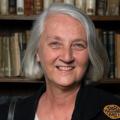
Janice Monk
Janice Monk, Research Professor, School of Geography and Development, and Research Social Scientist Emerita at Southwest Institute for Research on Women, at the University of Arizona, is one of the most influential figures in the disciplines of geography and women’s studies. Her interdisciplinary research in geography education and feminist/gender studies has played a pivotal role in within the discipline. Her two decades as Director of the Southwest Institute for Women’s Studies, focusing on women’s employment, education, health, as well as encouraging science and math education for girls, have introduced feminism to multiple generations of geographers. In addition, the AAG recognizes Dr. Monk’s work on university-level teaching and graduate level geography education; her early and significant involvement in the Geography Faculty Development Alliance (GFDA); and her work on AAG projects (EDGE and others) researching career opportunities and professional development for geographers. The AAG also applauds Dr. Monk for her large body of publications, and your co-editorships of two series: International Studies of Women and Place and of Society, Environment and Place. Professor Monk forcefully demonstrates the highly creative and consequential place that geographers can have in engaging in and shaping broader transdisciplinary discussions and debates.

2019 AAG Stanley Brunn Award for Creativity in Geography
Janice Monk
2019 AAG Stanley Brunn Award for Creativity in Geography
Janice Monk, Research Professor, School of Geography and Development, and Research Social Scientist Emerita at Southwest Institute for Research on Women, at the University of Arizona, is one of the most influential figures in the disciplines of geography and women’s studies. Her interdisciplinary research in geography education and feminist/gender studies has played a pivotal role in within the discipline. Her two decades as Director of the Southwest Institute for Women’s Studies, focusing on women’s employment, education, health, as well as encouraging science and math education for girls, have introduced feminism to multiple generations of geographers. In addition, the AAG recognizes Dr. Monk’s work on university-level teaching and graduate level geography education; her early and significant involvement in the Geography Faculty Development Alliance (GFDA); and her work on AAG projects (EDGE and others) researching career opportunities and professional development for geographers. The AAG also applauds Dr. Monk for her large body of publications, and your co-editorships of two series: International Studies of Women and Place and of Society, Environment and Place. Professor Monk forcefully demonstrates the highly creative and consequential place that geographers can have in engaging in and shaping broader transdisciplinary discussions and debates.

Mei-Po Kwan
Mei-Po Kwan of the University of Illinois Urbana-Champaign is one of the most creative and transformative geographers of our time. Her research has made groundbreaking theoretical contributions to health, mobility, urban and transportation geographies, and to GIScience, broadly. Kwan’s articulation of the uncertain geographic context problem highlights a fundamental methodological problem in studies of the effects of environmental variables on individual behaviors or outcomes. Combining empirical research with original theory, Kwan has developed and advanced paradigm- shifting ideas (e.g. feminist visualization, hybrid geographies, and more) that profoundly challenge how geographers think about the disciplinary dynamics, geographic method, and quantative vs qualitative geography; or GIScience vs social theory. Kwan’s work on space-time accessibility fundamentally affected the study of access to urban facilities and opportunities by underprivileged populations. She also played a key role in the intergration of GIS with qualitative methods, and pioneered the development of a GIS- based approach to narrative analysis.

2018 AAG Stanley Brunn Award for Creativity in Geography
Mei-Po Kwan
2018 AAG Stanley Brunn Award for Creativity in Geography
Mei-Po Kwan of the University of Illinois Urbana-Champaign is one of the most creative and transformative geographers of our time. Her research has made groundbreaking theoretical contributions to health, mobility, urban and transportation geographies, and to GIScience, broadly. Kwan’s articulation of the uncertain geographic context problem highlights a fundamental methodological problem in studies of the effects of environmental variables on individual behaviors or outcomes. Combining empirical research with original theory, Kwan has developed and advanced paradigm- shifting ideas (e.g. feminist visualization, hybrid geographies, and more) that profoundly challenge how geographers think about the disciplinary dynamics, geographic method, and quantative vs qualitative geography; or GIScience vs social theory. Kwan’s work on space-time accessibility fundamentally affected the study of access to urban facilities and opportunities by underprivileged populations. She also played a key role in the intergration of GIS with qualitative methods, and pioneered the development of a GIS- based approach to narrative analysis.
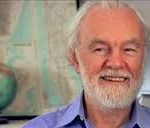
David Harvey
David Harvey, Distinguished Professor of Anthropology & Geography at the Graduate Center of the City University of New York, is one of the most influential figures in geography and urban studies ranking among the most cited intellectuals of all time across the humanitites and social sciences. His work is foundational to the emergence of Marxist and radical geography. His many writings and lectures have introduced Marxism to multiple generations of geographers and established the importance of space and uneven geographical development to the survival of capitalist accumulation for non-geographers. Professor Harvey forcefully demonstrates the highly creative and consequential place that geographers can have in engaging and shaping broader transciplinary discussions and debates.

2017 AAG Stanley Brunn Award for Creativity in Geography
David Harvey
2017 AAG Stanley Brunn Award for Creativity in Geography
David Harvey, Distinguished Professor of Anthropology & Geography at the Graduate Center of the City University of New York, is one of the most influential figures in geography and urban studies ranking among the most cited intellectuals of all time across the humanitites and social sciences. His work is foundational to the emergence of Marxist and radical geography. His many writings and lectures have introduced Marxism to multiple generations of geographers and established the importance of space and uneven geographical development to the survival of capitalist accumulation for non-geographers. Professor Harvey forcefully demonstrates the highly creative and consequential place that geographers can have in engaging and shaping broader transciplinary discussions and debates.

Michael Goodchild
Michael Goodchild, Emeritus Professor of Geography at the University of California, Santa Barbara, transformed GIScience from a fledgling field into a credible new science respected by the academic establishment. Not only can Dr. Goodchild be credited with naming the field of Geographic Information Science, but his continuous and creative work has also opened up GIS and spatial analytical methods to many other disciplines. These outstanding contributions stand in addition to Dr. Goodchild’s many other notable achievements over the last 45 years including his academic scholarship and prolific publications output, his effectiveness as an educator who inspired thousands of students, and his tireless service to the discipline through journal editing, editorial boards, advisory committees and so on.

2016 AAG Stanley Brunn Award for Creativity in Geography
Michael Goodchild
2016 AAG Stanley Brunn Award for Creativity in Geography
Michael Goodchild, Emeritus Professor of Geography at the University of California, Santa Barbara, transformed GIScience from a fledgling field into a credible new science respected by the academic establishment. Not only can Dr. Goodchild be credited with naming the field of Geographic Information Science, but his continuous and creative work has also opened up GIS and spatial analytical methods to many other disciplines. These outstanding contributions stand in addition to Dr. Goodchild’s many other notable achievements over the last 45 years including his academic scholarship and prolific publications output, his effectiveness as an educator who inspired thousands of students, and his tireless service to the discipline through journal editing, editorial boards, advisory committees and so on.
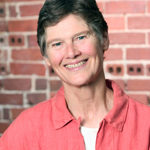
Susan Hanson
Susan Hanson, Professor Emerita at Clark University and Fellow of the National Academy of Sciences, was instrumental in introducing feminist theories and gendered analysis to geography, thus creating new modes of interpreting and explaining our everyday worlds. Her work challenged the field of transportation geography by bringing to the fore how difference (gender, class and race) matters in people’s mobility, job opportunities, and access to services. She deepened these insights by extending her research into the gendered character of local labor markets, women’s entrepreneurship, and the role of networks in enabling and constraining women. Through her writing, teaching and everyday life, she has provided inspiration to several generations of geographers by understanding the importance of integrating familial responsibilities and the caring for others with career aspirations and obligations.

2015 AAG Stanley Brunn Award for Creativity in Geography
Susan Hanson
2015 AAG Stanley Brunn Award for Creativity in Geography
Susan Hanson, Professor Emerita at Clark University and Fellow of the National Academy of Sciences, was instrumental in introducing feminist theories and gendered analysis to geography, thus creating new modes of interpreting and explaining our everyday worlds. Her work challenged the field of transportation geography by bringing to the fore how difference (gender, class and race) matters in people’s mobility, job opportunities, and access to services. She deepened these insights by extending her research into the gendered character of local labor markets, women’s entrepreneurship, and the role of networks in enabling and constraining women. Through her writing, teaching and everyday life, she has provided inspiration to several generations of geographers by understanding the importance of integrating familial responsibilities and the caring for others with career aspirations and obligations.
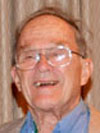
Robert B. (Bob) Kates
Robert B. (Bob) Kates’s work (and indeed his life) has transformed how the community of knowledge pursues a social objective of the sustainability of the systems that we care about at scales from global to local, and it has shaped the activities in both research and practice of a host of people and institutions worldwide who are joining in the pursuit of this elusive goal. From the beginning, as a graduate student at Chicago studying with Gilbert White, the grand query of Robert W. (Bob) Kates was “What is and ought to be the human use of the earth?” Starting with floodplain management, his probing intellect and restless curiosity have led him to focus on three main issues: living with hazard, ending hunger, and sustaining life on Earth. The remarkable focus, quality, and quantity of Bob Kates’s scholarly career have earned him recognition unmatched by any other geographer in his generation. For example, in 1975 he was elected to the National Academy of Sciences; in 1981 he was awarded a MacArthur Prize Fellowship; and in 1991 he was awarded the National Medal of Science in a ceremony at the White House in Washington, D.C.

2014 AAG Stanley Brunn Award for Creativity in Geography
Robert B. (Bob) Kates
2014 AAG Stanley Brunn Award for Creativity in Geography
Robert B. (Bob) Kates’s work (and indeed his life) has transformed how the community of knowledge pursues a social objective of the sustainability of the systems that we care about at scales from global to local, and it has shaped the activities in both research and practice of a host of people and institutions worldwide who are joining in the pursuit of this elusive goal. From the beginning, as a graduate student at Chicago studying with Gilbert White, the grand query of Robert W. (Bob) Kates was “What is and ought to be the human use of the earth?” Starting with floodplain management, his probing intellect and restless curiosity have led him to focus on three main issues: living with hazard, ending hunger, and sustaining life on Earth. The remarkable focus, quality, and quantity of Bob Kates’s scholarly career have earned him recognition unmatched by any other geographer in his generation. For example, in 1975 he was elected to the National Academy of Sciences; in 1981 he was awarded a MacArthur Prize Fellowship; and in 1991 he was awarded the National Medal of Science in a ceremony at the White House in Washington, D.C.
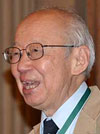
Yi-Fu Tuan
Yi-Fu Tuan, Vilas Research Professor emeritus at the University of Wisconsin, Madison. His scholarship has transformed how geographers conceptualize place, not only in ways that have reoriented the discipline, but also in ways that draw considerable attention from non-geographers. Today, his scholarly writings, creative essays, and texts for artistic exhibitions continue to epitomize innovation. His path-breaking has created an intellectual place where generations of cultural geographers have flourished in a variety of new directions. Tuan has pioneered new themes in geography that continue to resonate broadly and deeply across many disciplines and around the world. AAG recognizes him for his foundational scholarship on place and home, and his formative role in the emergence of humanistic geography as a vibrant contemporary field of human geography.

2013 AAG Stanley Brunn Award for Creativity in Geography
Yi-Fu Tuan
2013 AAG Stanley Brunn Award for Creativity in Geography
Yi-Fu Tuan, Vilas Research Professor emeritus at the University of Wisconsin, Madison. His scholarship has transformed how geographers conceptualize place, not only in ways that have reoriented the discipline, but also in ways that draw considerable attention from non-geographers. Today, his scholarly writings, creative essays, and texts for artistic exhibitions continue to epitomize innovation. His path-breaking has created an intellectual place where generations of cultural geographers have flourished in a variety of new directions. Tuan has pioneered new themes in geography that continue to resonate broadly and deeply across many disciplines and around the world. AAG recognizes him for his foundational scholarship on place and home, and his formative role in the emergence of humanistic geography as a vibrant contemporary field of human geography.